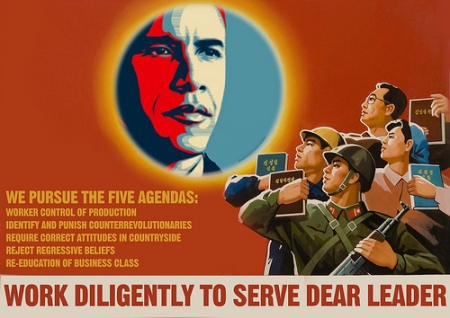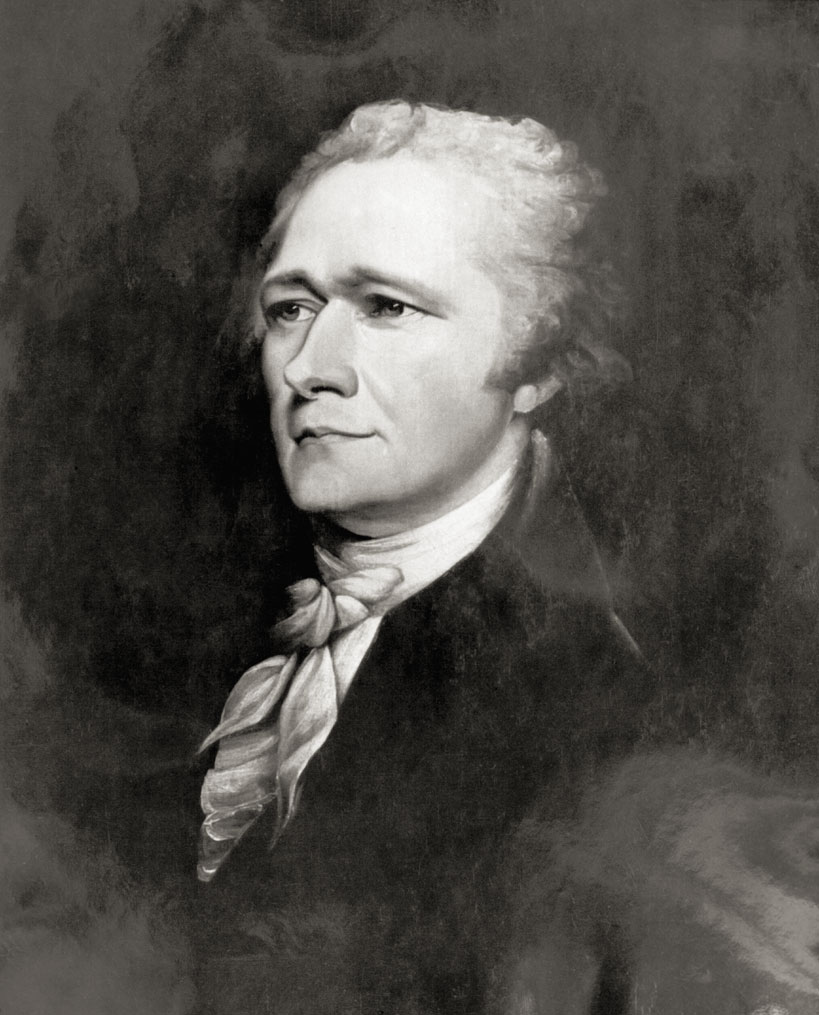(This piece is a satiric rebuttal to an article that appeared on Salon called “How to beat libertarians on the economy”)
 When it comes to debating communists on the future of the American economy, libertarians are at a disadvantage. Communists are united behind a single vision of the ideal economy, while libertarians are divided amongst three rival schools of economic strategy.
When it comes to debating communists on the future of the American economy, libertarians are at a disadvantage. Communists are united behind a single vision of the ideal economy, while libertarians are divided amongst three rival schools of economic strategy.
On economics, there is no distinction between liberalism or communism. The mainstream left’s economic vision is communist, pure and simple. Bigger government, more taxes, no free trade and regulate everything that moves. Add to this the goal of instituting socialized healthcare, expansion of Social Security and Medicare and you pretty much have instituted all of the planks of the Communist Manifesto.
Nothing like that consensus exists with free marketeers. Instead, three distinct and conflicting traditions of political economy coexist under the rubric of conservatism and libertarianism. The three are Hamiltonian Mercantilism, Jeffersonian Republicanism and Anarcho-Capitalism.
The three schools of right-wing economic thought have coexisted, sometimes as rivals and now as allies, since the founding of the American republic. Each has had its own constituency and social base.

Hamiltonian Mercantilism is the economic concept that the American government should lead the way in enforcing free trade around the globe. The full might of the U.S. military should defend merchant ships bearing an American flag, anywhere in the world. The first Treasury Secretary of the United States, Alexander Hamilton played a large role in creating the current economic system we have and many of today’s conservatives adhere to this philosophy. Mercantilism is the regime whereby the state controls economic life in favor of political strength and independence, as well as creates a favorable money balance on foreign trade.
Jeffersonian Republicanism is the economic concept that a limited federal government may enforce simple rules, with the majority of states deciding the most complex matters in their own localities. A “laboratory of democracy,” can arise to create an “empire of liberty,” in a land where individuals are free to make most of their own decisions. Jeffersonians believed in a republic as a form of government, as well as political opportunity. They have a preference for the yeoman farmer, planters and the plain folk. Economists such as Friedrich Hayek or Milton Friedman might be comfortable in this sort of a libertarian republic.
Anarcho-Capitalism is the radical economic concept that the individual owns their own lives, liberty and property, and they may freely choose to dispense with any of these at any time, however they please, provided they harm no one else. It is the pure laissez-faire. The tradition of anarchy capitalism denounces its two rival minarchist philosophies. The students of the school of thought preferred by economists such as Murray Rothbard or Walter Block would feel comfortable in this system of self-governance.
RELATED: Has a libertarian society ever existed?
Only the abolition of much of government can serve as a remedy to the evils of progressive taxation, socialized medicine, wage and price controls. The abolition of payroll taxes and corporate gains taxes would be good for the economy, as well as removing the authority of the alphabet agencies to write law.
Universal economic freedom and personal liberty as a matter of rights for all individuals should be the libertarian agenda for America in our time. The sooner that the economic right unites behind one of these three main schools of economic thought, the sooner the battle for the future of America can be successfully taken to the communist liberals.


5 comments